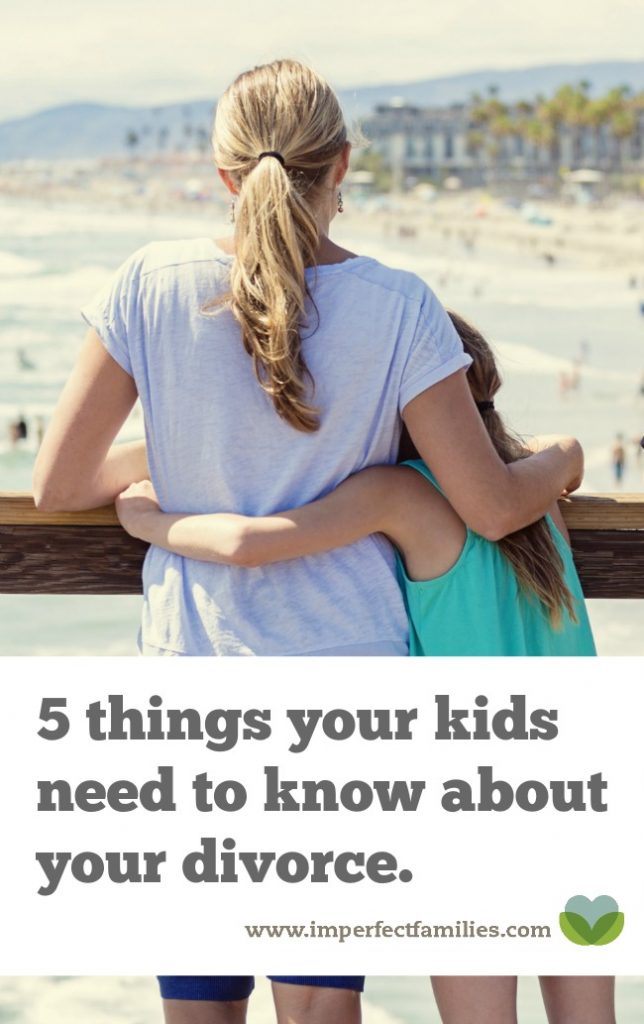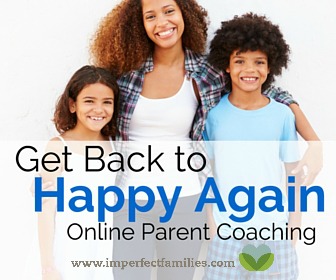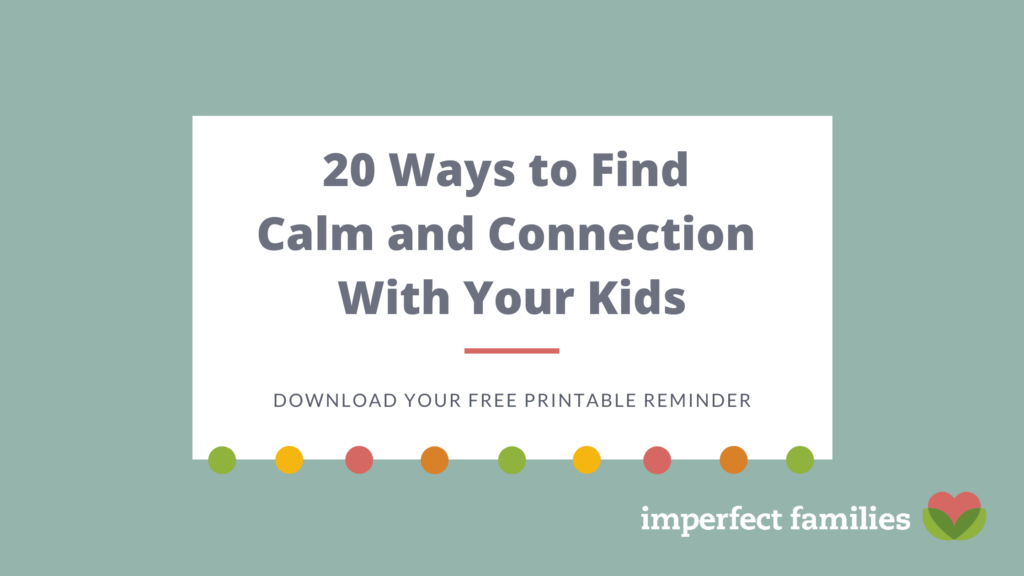
On the floor of my therapy office, a 6-year-old draws a picture of her family. Herself, Mom, Dad, two brothers, and a dog.
Her mom and dad are holding hands. Everyone is smiling.
My heart sinks as I look at her drawing.
Her parents have been divorced since she was 3. I’m pretty sure it’s been at least that long since they held hands and smiled.
As a child therapist, I’ve had the privilege of spending time with children through different stages of their parents’ divorce or separation.
Some parents used therapy as a safe place to talk with their kids about the upcoming divorce. Some children came because they were having difficulty coping with the transition. And, due to serious circumstances, some children processed feelings related the fact that they will never spend time with one of their parents again.
While no two divorces or separations look alike, there are some common themes that apply across the board.
5 things your child needs to know about your divorce:
- We are not getting back together: Regardless of the circumstances around your life prior to your divorce, many children still wish their parents were together again. In some situations, co-parents do get remarried. But, if this is not the case for you, empathize with your child’s wish, without giving them false hope. “I know you have good memories of daddy and I living together. Divorce can feel hard and different. Even though we’re not all together anymore, I love being able to spend one-on-one time with you!”
- It’s ok to love both parents: You may have some really strong feelings about your co-parent (And vice versa), but your kids are part of both of you. Some children need to be reminded that they can love more than one person at a time. It may feel unfair or difficult for you to encourage your child to talk about loving their co-parent, but it may help ease their anxiety about having to choose one parent over the other. “You love mom and dad very much!”
- Parents do not divorce children: Even though it may seem ridiculous to you, many children have a fear that their parents will divorce them if they do something wrong or bad. You may need to clarify with your child that divorce or separation is just for grown-ups. Remind them that there is nothing they could say or do to change your love for them. And, that even if you are living in separate homes, you will be their parents forever.
- You are not responsible: Some children will take on unnecessary guilt or shame about their parent’s divorce. They will create a mental story that the divorce was their fault, maybe even connecting it to a specific situation where they yelled or refused to follow directions. Do what you can to make it very clear that your child did not cause the divorce, and that there was nothing they could have done differently or better to make you stay together.
- Age appropriate details: Assume your child is more aware of what’s going on than it seems. Even if your child doesn’t know the specifics about your relationship, they know something’s up. The amount of information you give your child will depend on their age and developmental stage. Details about where they will live, when they will see their parent, how long they will spend with the other parent, and what type of things they will have (or will bring) at each house, is a great place to start.
3 things your child does not need to know:
- The reasons you dislike their parent: You may have a laundry list of things you would like to change about your co-parent. Remember, your child loves you both. It’s your job to support your child through this transition, not to turn them against their co-parent.
- The things that frustrate you about the other person’s parenting: Sharing custody may highlight the differences in your parenting styles. Rather than being critical of the co-parent in front of your child, talk directly to their parent or share your concerns with another trusted adult.
- Your feelings about new significant others: As your family continues to grow and change, you may have some particularly strong feelings about your co-parent’s choices. Again, this is not a conversation you need to have with your child. Confide in a trusted adult, or seek support from a mental health professional.
It’s no question that separation and divorce are hard for everyone involved.
Opening up the conversation in a child-appropriate way can be an excellent way to support your child through their big feelings about the changes in their family.
Support is Available!
You do not have to go through this transition alone. Online Parent Coaching is a great opportunity to talk about single parenting, blended family issues, or co-parenting. It’s a judgment-free place to problem solve through the unique parenting challenges that come with divorce or separation. Learn more about Parent Coaching!




Comments have been turned off to retain the privacy of all families. If you have a question or comment on the topic, you're always welcome to contact me.